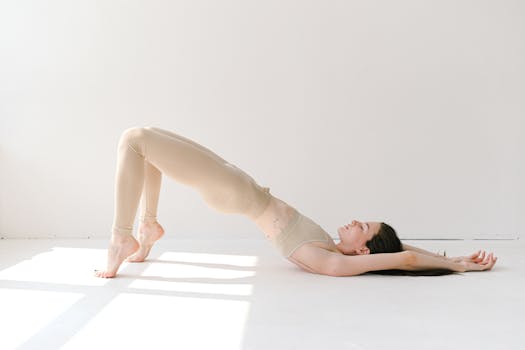
From Mat to Mind: How Yoga and Pilates Transform Your Mental Well-Being
Introduction to Yoga and Pilates

Yoga and Pilates are two popular practices that have been around for centuries, but have recently gained widespread attention for their numerous physical and mental benefits. As someone who has personally experienced the transformative power of these practices, I can attest to their ability to improve not only our physical health but also our mental well-being. In this article, we’ll explore the ways in which yoga and Pilates can transform our minds and bodies, and provide tips on how to get started with these practices.
The Science Behind Yoga and Pilates

So, how do yoga and Pilates affect our mental well-being? The answer lies in the science behind these practices. Yoga and Pilates have been shown to reduce stress and anxiety by promoting relaxation and improving mood. They achieve this by stimulating the production of certain neurotransmitters, such as serotonin and dopamine, which are essential for regulating our mood and emotions. Additionally, yoga and Pilates have been found to improve sleep quality, which is critical for our mental health and well-being.
One of the key ways in which yoga and Pilates achieve these benefits is through the practice of mindfulness. Mindfulness is the practice of being present in the moment, paying attention to our thoughts and feelings without judgment. By cultivating mindfulness, we can become more aware of our thoughts and emotions, and better equipped to manage stress and anxiety. Yoga and Pilates provide a unique opportunity to practice mindfulness, as they require us to focus on our breath and the sensations in our body.
Physical and Mental Benefits of Yoga and Pilates

The physical benefits of yoga and Pilates are well-documented. They can help improve our flexibility, balance, and strength, as well as reduce our risk of injury. But the mental benefits of these practices are just as impressive. By reducing stress and anxiety, improving mood, and promoting mindfulness, yoga and Pilates can have a profound impact on our mental well-being.
One of the most significant benefits of yoga and Pilates is their ability to reduce symptoms of anxiety and depression. By promoting relaxation and improving mood, these practices can help alleviate symptoms of these conditions, and even reduce the risk of developing them in the first place. Additionally, yoga and Pilates can help improve our self-esteem and body image, by promoting a positive and accepting relationship with our bodies.
Getting Started with Yoga and Pilates

If you’re interested in trying yoga or Pilates, there are a few things to keep in mind. First, find a qualified instructor who can provide guidance and support as you begin your practice. This is especially important if you’re new to these practices, as proper form and technique are essential for getting the most out of them.
Next, start slow and be patient with yourself. Yoga and Pilates are practices that take time to develop, and it’s unlikely that you’ll see significant benefits overnight. Be gentle with yourself, and don’t push past any discomfort or pain. With regular practice, you’ll begin to notice the benefits of yoga and Pilates, and you’ll be more likely to stick with these practices over time.
Finally, remember that yoga and Pilates are not just physical practices, but also mental and emotional ones. Be open to the idea that these practices can transform not just your body, but also your mind and spirit. With an open and receptive attitude, you’ll be more likely to experience the full range of benefits that yoga and Pilates have to offer.






